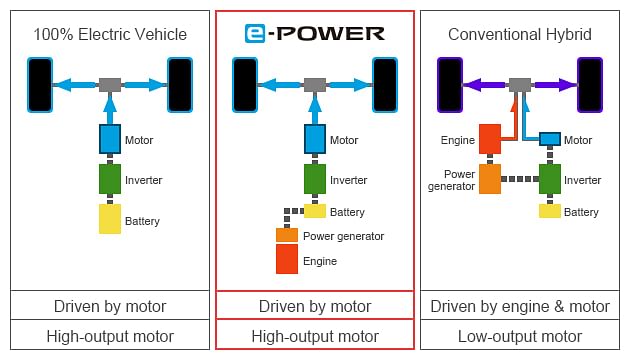Dongfeng plans 20 electrified models by 2022, 30% sales from e-Power and EVs
DFL plans to introduce 20 electrified (EV + e-Power) models under its four brands by 2022, with Nissan e-Power technology available on core models
Dongfeng Motor Company (DFL), one of the largest and most diversified joint venture automakers in China, announced that it will accelerate the ‘Green 2022 Plan’ rollout with a focus on green products, production and materials reuse.
The company says this move will builds on its history of applying green standards to achieve the goals of being the ‘most sustainable brand’ in the automotive industry. From 2010 to 2017, DFL's energy consumption, pollutant emissions, single car fuel consumption and solid waste utilisation rates all met, or exceeded, national green policy objectives.
"Since its founding 15 years ago, DFL has delivered high-quality automotive products to our customers," said Uchida Makoto, global senior vice president, Nissan and president, DFL. "We will continue to do so in this period of industry change, understanding that excellence in the Green area is a key factor to successfully navigate this change. Our green development will underpin operations throughout the value chain."

DFL plans to introduce 20 electrified (EV + e-Power) models under its four brands by 2022, with Nissan e-Power technology available on core models. By 2022, 30 percent of DFL sales will be EV and e-Power products. The company plans to localise 100 percent of key e-components within three years as Nissan technologies, the QA system and APW production mode are introduced.
Additionally for improving sustainable manufacturing, energy-saving methods will be applied to operations, and three solar power generation parks will be established, with the goal of achieving a 20 percent reduction in energy consumption and a CO2 emission reduction equivalent to the absorption of 200,000mu of forest (accumulated to 2022).
The company will also utilise intelligent water systems, which it says will reduce around 35 percent of water usage. And to reduce environmental pollutants, an investment of RMB 1 billion (Rs 1,018 crore) will be made to upgrade 27 paint shops in Guangzhou, Zhengzhou, Xiangyang and Dalian, reducing VOC (volatile organic compounds) emissions by 50 percent.
DFL also plans to introduce advanced battery regeneration technology, which it says will lower environmental pollution, increase vehicle recycling value and reduce waste. The commercial energy storage will put recycled batteries to use, providing a stable power supply for local communities and industries once energy users reach peak electricity consumption.
"China's automotive industry is facing a period of strategic opportunity," said Uchida. "By developing new energy vehicles and managing the process in a green and sustainable manner, DFL is seizing the opportunity."
RELATED ARTICLES
Horse Powertrain reveals hybrid conversion for electric cars
Engine-making joint venture of Geely and the Renault Group announces new hybrid powertrain that fits into the same space...
Aisin to produce hybrid motor for Mitsubishi in Thailand
The hybrid drive motor and gearbox, will be produced at Aisin Powertrain (Thailand) Co for use in the Mitsubishi XForce ...
GM reports strong Q1 sales in China, demand for EVs and hybrids surges 53%
General Motors and its joint ventures in China have sold more than 442,000 units between January and March 2025.






 By Autocar Professional Bureau
By Autocar Professional Bureau
 14 Aug 2018
14 Aug 2018
 5778 Views
5778 Views









